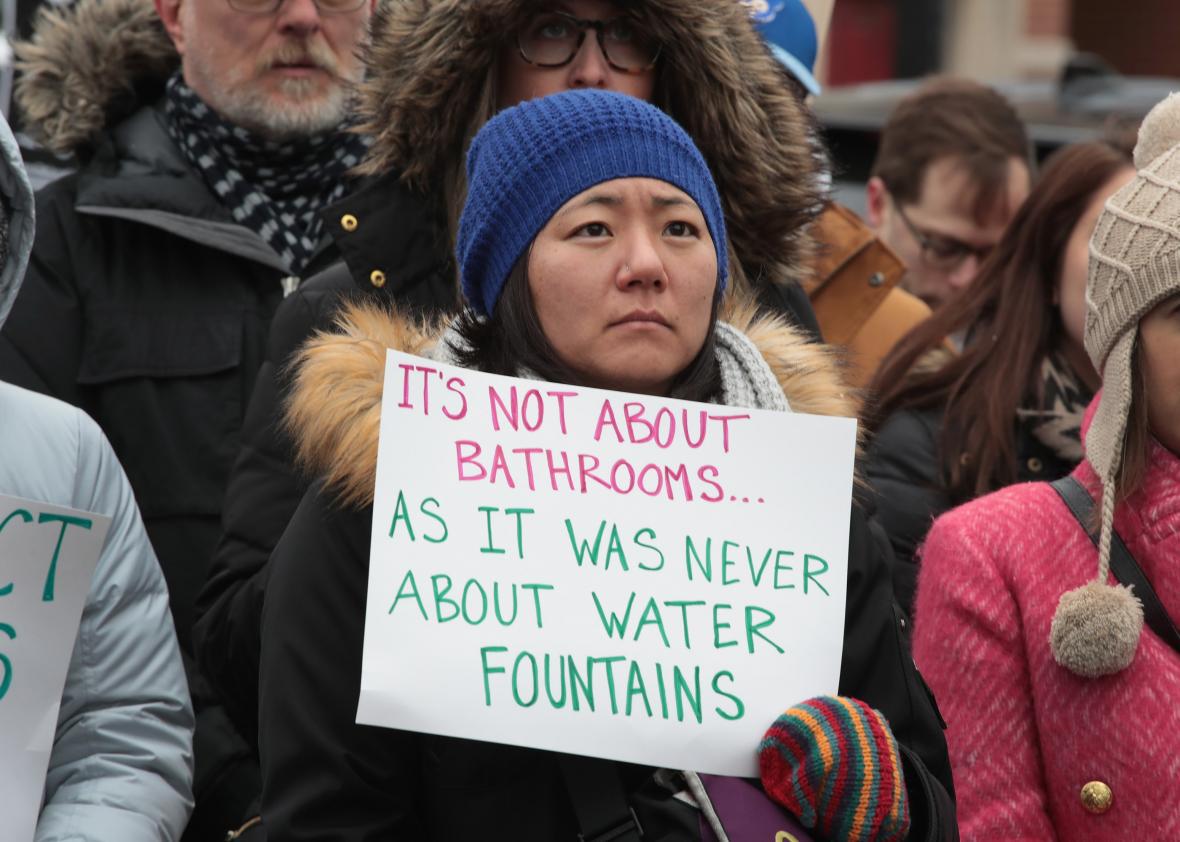On Thursday, the New Hampshire House of Representatives voted to table a bill that would’ve prohibited discrimination against transgender people across the state. The measure had passed out of committee by a 15–2 vote with strong bipartisan support. But after the committee vote, anti-trans activists flooded legislators with emails, letters, and phone calls urging them to oppose the bill. Thursday’s 187–179 vote will likely kill the measure for the remainder of the legislative session.
Why did so many legislators, most of them Republicans, suddenly decide to sink the bill? Before the vote, everything had gone smoothly: The committee held hours of testimony during which transgender New Hampshire residents explained how discrimination had harmed them and their families. Multiple Republicans (along with most Democrats) enthusiastically endorsed the measure. Republican Gov. Chris Sununu declined to oppose it, suggesting he might sign it if it passed with sufficient support. And the arguments against it were weak: 20 other states and the District of Columbia bar gender identity discrimination and have no difficulty enforcing the law. (New Hampshire is the lone New England state to lack trans protections.)

Freedom New Hampshire
But in the end, the bathroom predator myth still won out. House Republican leadership insisted that a trans nondiscrimination law would somehow allow sexual predators to rape women and children in public bathrooms. And anti-LGBTQ advocates overwhelmed legislators over the weekend with anti-trans rants, alleging that a vote for the bill would lead to more sexual assault. The bathroom predator myth, of course, is wholly fictional, a canard concocted to dress up religious objections to trans rights in secular pretext. Yet by sheer force of repetition, activists have managed to convince legislators that this fabrication might be a legitimate concern, introducing ersatz ambiguity into the discussion—and giving representatives cover to oppose trans rights. Consider an email sent by Republican state Rep. Jess Edwards explaining why he flipped his vote, from supporting the bill in committee to opposing it on the House floor:
As a “freedom guy,” I think everyone deserves to operate without discrimination in employment, housing and public accommodations. So why will I vote to table the bill next week since I just made the case to vote for it? The public is not ready. The number of people who have written stating that this bill essentially offers their children up to sexual predators is outrunning by 5 to 1 the number of emails stating that it’s time to end the daily beatings of transgendered people. The passionate are yelling past each other with worst-case scenarios. I don’t think this is an environment in which the legislature should pick a side. Society needs to evolve further on its own I think.
The problem with this logic is that the public is never fully ready for a nondiscrimination law. If it were, the law wouldn’t be necessary in the first place. These measures exist precisely because some portion of the public continues to discriminate against individuals on their basis of their identity. The government has no ability to stamp out discriminatory beliefs. But it has a duty to protect every individual’s right to liberty and equality. And if it takes that job seriously, it must eventually take sides in the debate and protect the interests of those who face violence and cruelty because of who they are.
New Hampshire abdicated this responsibility on Thursday. And it did so for plainly bigoted and irrational reasons. Representatives like Edwards betrayed their state’s most vulnerable communities out of moral cowardice, turning a likely victory for human rights into a pathetic capitulation to prejudice. We’ve come to expect this kind of casual callousness out of a state like Texas, which is currently gearing up for its own anti-trans campaign. But New Hampshire’s stark rejection of transgender equality is startling and repugnant.
